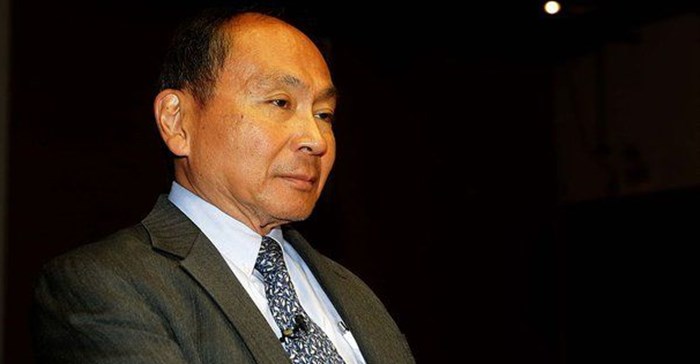Fukuyama's 6 simple strategies to get SA off the ground
Every country, South Africa included, needs to formulate its own development strategy. Professor Francis Fukuyama, senior fellow at Stanford University, made a number of important points about how such a strategy should be advanced during his recent visit to the country.

Francis Fukuyama
- Steer clear of “bad ideas”
Especially those that have been resurrected by some intellectuals and policy-makers, some of whom disavow prudent fiscal policy and embrace a host of failed ideas. Developmental states, for example, have been successful in places like East Asia, but their success was due to specific historical and cultural traditions, like long experience with meritocratic bureaucracy. These conditions do not necessarily exist in other regions of the world.- Don’t bet on China being a saviour
China’s emphasis on investment in infrastructure may bring advantages to developing countries because they “are good at building things for general public benefit”. However, China may be “too relaxed about risk” and is likely to be overestimating the returns on investments whose long-run sustainability remains at best uncertain. Encourage labour-intensive industries. This cannot be done, however, by climbing the same ladder as South Korea. “Given the structure of the global economy, it is very unlikely that a developing country is going to replicate the stages of development that South Korea went through: the upper ranks of that development ladder are now occupied by China”. Instead we need to “find a niche that is not already occupied.” Intra-African trade expansion, encouraged by appropriate infrastructure and the removal of barriers to trade and investment, would help.- Attract foreign direct investment
South Africa’s problem has been that much investment has historically been in extractive industries that are capital-intensive, frequently corrupting, and located in areas of low population density. Special energy needs to go into promoting transparency and ethical behaviour.- Address corruption
South Africans need to recognise that corruption has been a universal problem but that many have found that it can be solved by promoting economic competition, weakening oligarchs, and changing bureaucrats’ behaviour. Anti-corruption prosecutors “can work”.- Plan for technological change
“A lot of jobs are already being automated away, and that process is going to continue in the future. Every society – including South Africa’s – is going to have to figure out how to retrain people.” - Keep the developmental state simple
“Before looking for out-of-the-box solutions, try fixing basic public good provision… If you want a developmental state, get the electricity on 24/7.” Fukuyama believes that, “you should probably figure out how to do the basic kind of goods provision, and fix that first: no complicated strategy is going to work if your lights keep going off”.





































